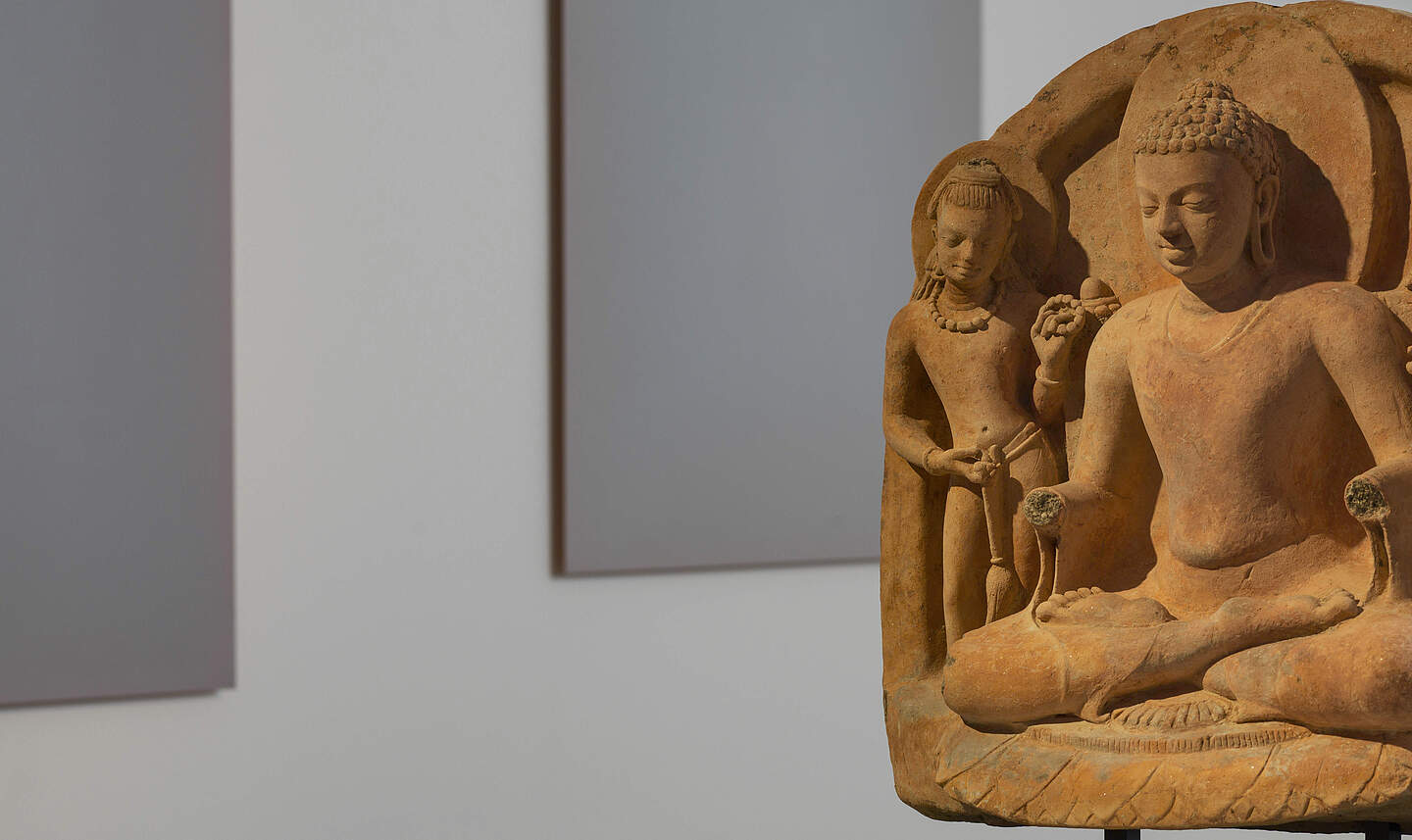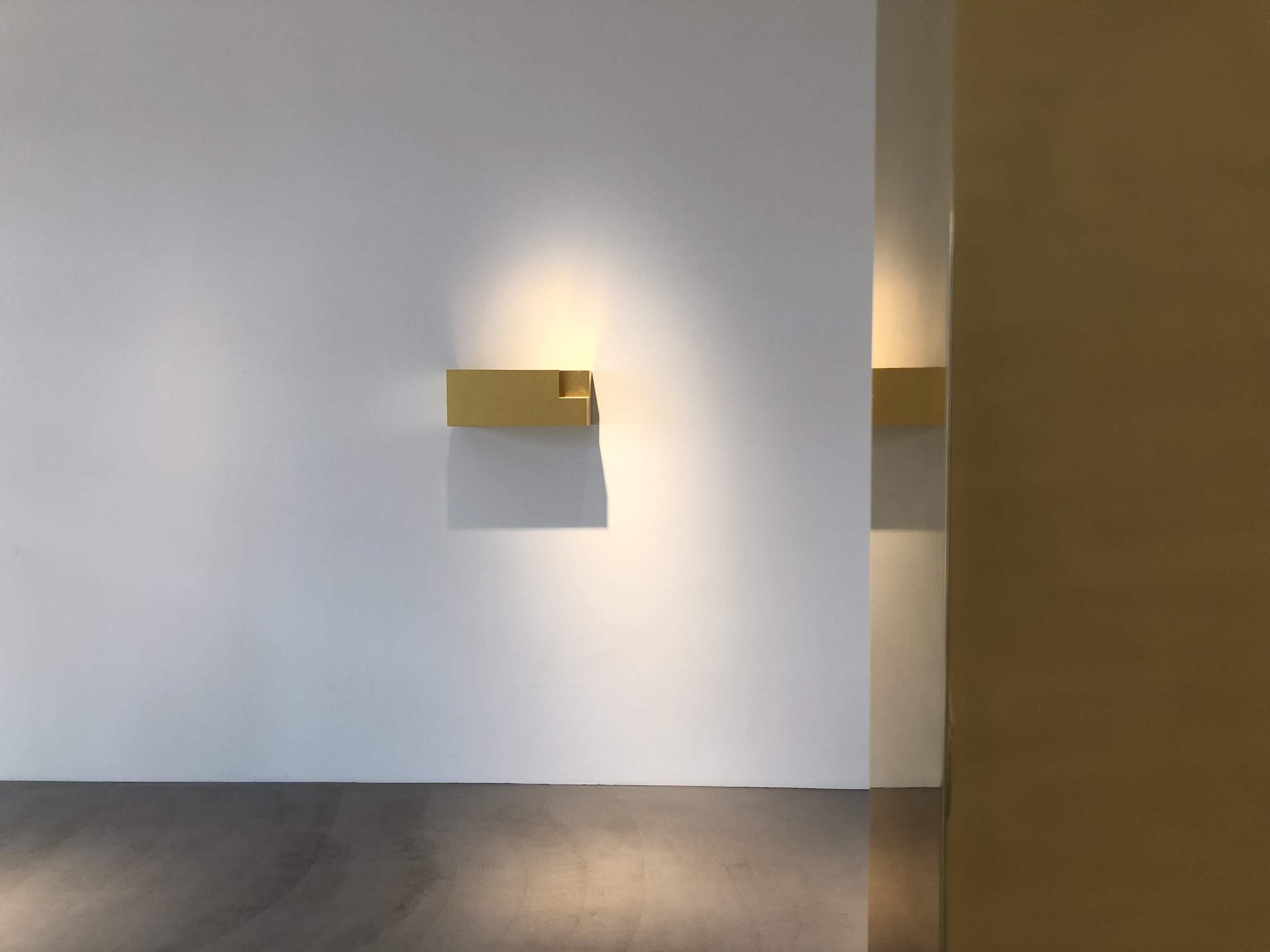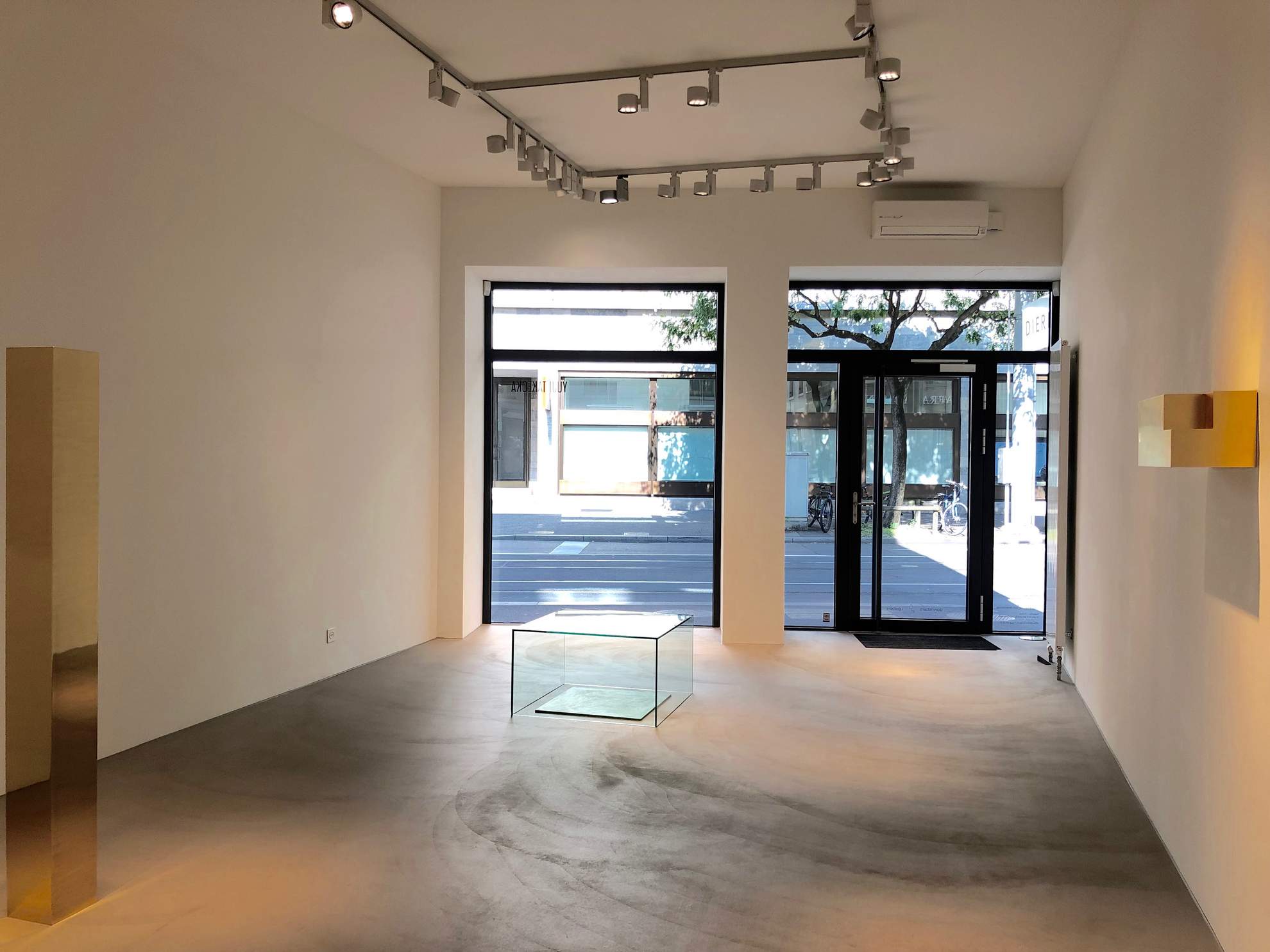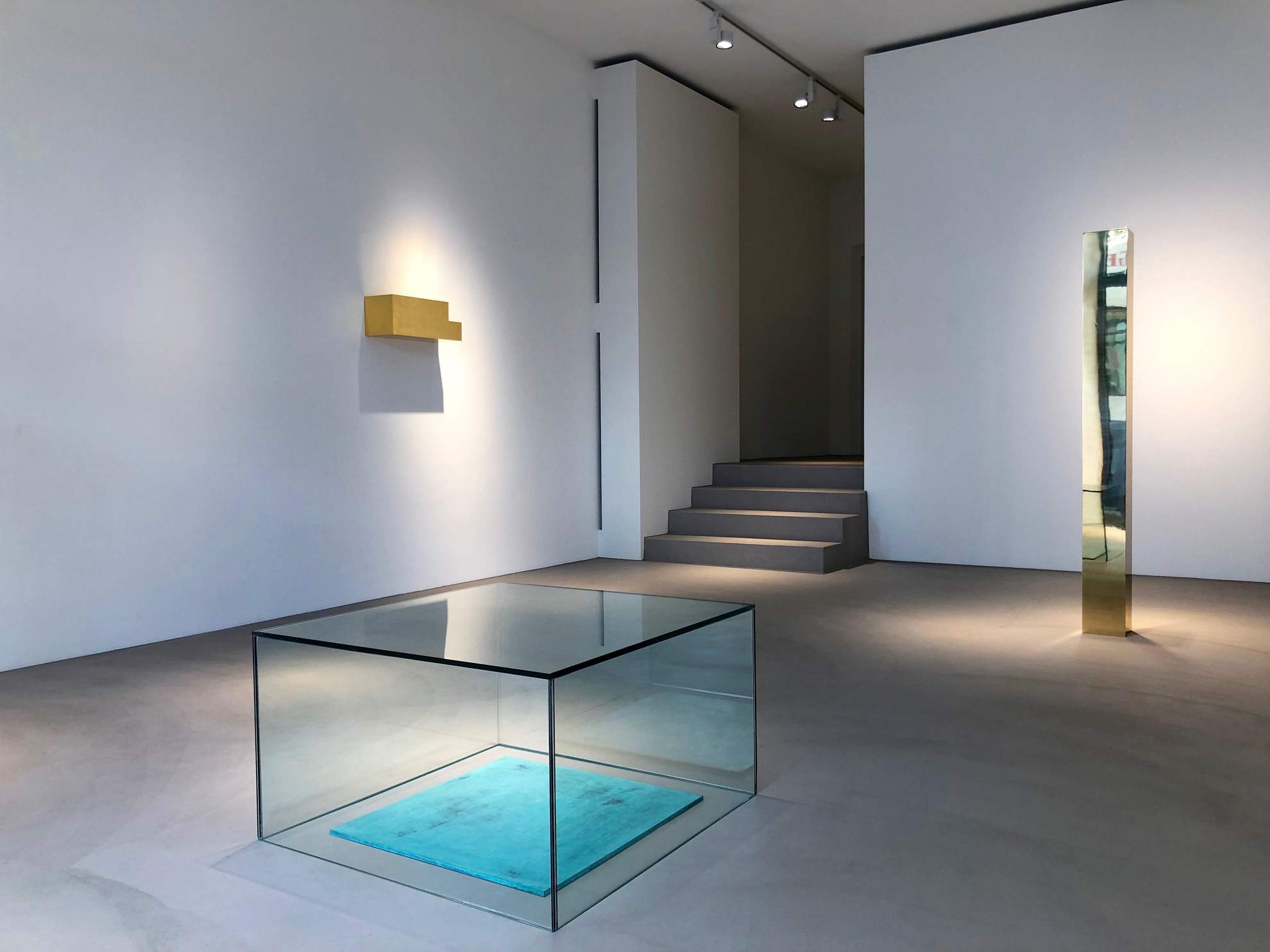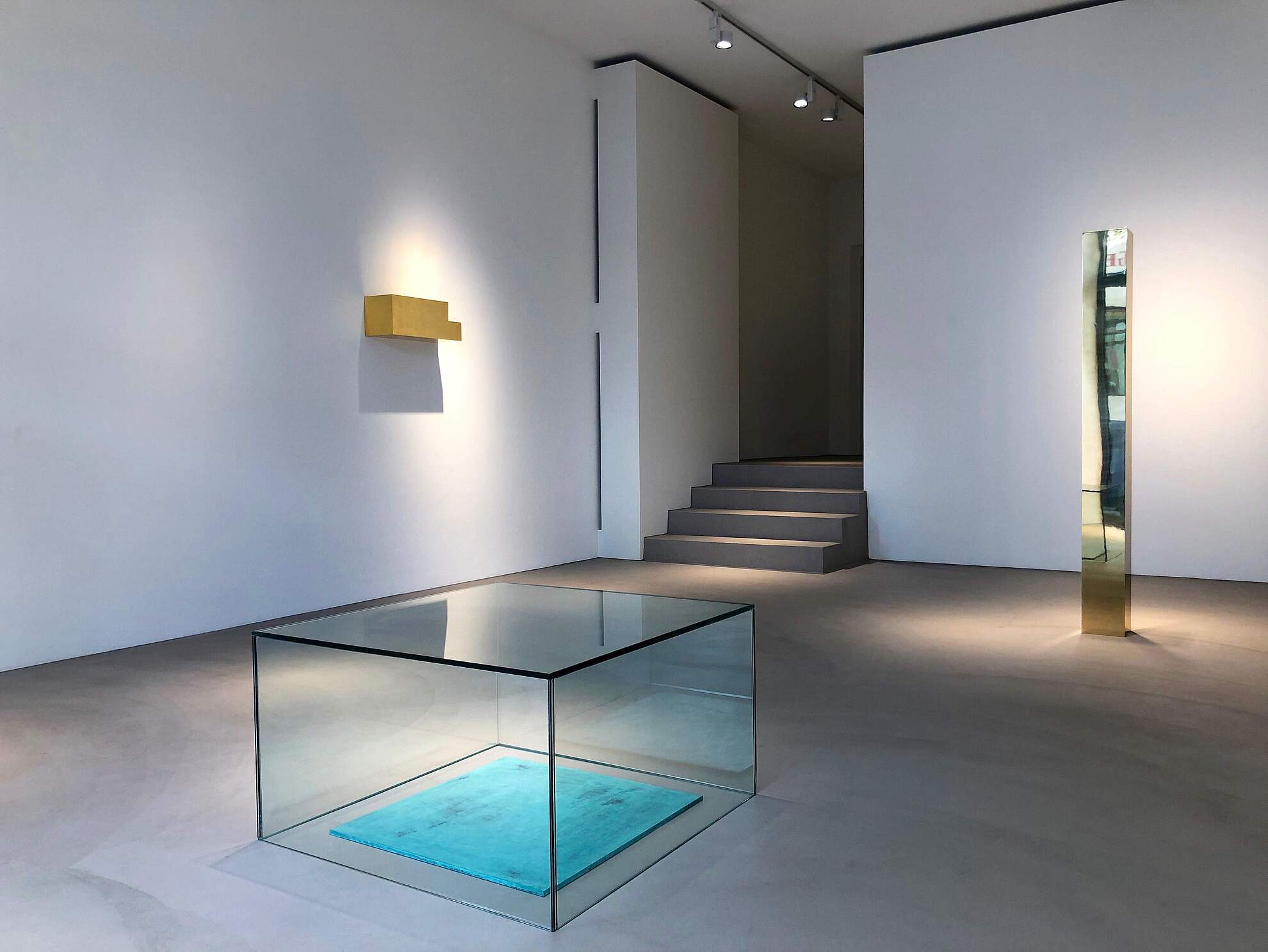
Yuji Takeoka
-
On the ground floor of the premises on the Paradeplatz, Galerie Dierking's current exhibition is devoted to Japanese sculptor Yuji Takeoka (b1946), who lives in Düsseldorf.
Reductive, lending structure to space, and playing around with their own material aesthetic – such is the impression given by Yuji Takeoka's abstract, conceptual sculptures. Takeoka's artistic approach is rooted in the concepts of how to present art, the location of its presentation, and how art is manifested through its surface and its volume.
my attitude is essentially different
from that of the Europeans.
I cannot explain in words how it is different,
but it constitutes what I would call Kyoto or Japan.
It's something mental and spiritual.
Yuji Takeoka
"[...] what is the 'surface' that determines recognition? I covered the floor with rubber, in order to make a thing out of the surface of a thing (of the floor) which allows us to recognise the thing. [...] By thinking about the problem of perception and the spatiality of the art-work, I reduced my concept to an increasingly basic position, to a zero level, which resulted in the 'pedestal', like an almost natural final stage.“ Yuji Takeoka, 2001
The artist made his début in the 1980s, exhibiting his "pedestal sculpture", where the pedestal, normally used for presentation of the sculpture, itself becomes an art-work in its own right. In the 20th century, this concept of the presentation of art, which precedes the creation of the art-work itself, has emerged in several places. In his reductive formal language, Takeoka – influenced in this respect by Marcel Duchamp's Readymades and his gesture of display – is also in line with Minimalists such as Donald Judd. Personal aesthetic sensibility, or "attitude", as Takeoka calls it, also relates to the sculpture and its presentation.
"The way we behave toward the external world, how we see, feel touch, act, communicate [...] I regard all this as 'attitude', and my attitude is essentially different from that of the Europeans. I cannot explain in words how it is different, but it constitutes what I would call Kyoto or Japan. It's something mental and spiritual. [...] Attitude [...]. The way we see [...]." Yuji Takeoka, 2001
Despite some superficially comparable features, in Takeoka's work there can be no question of minimal art, nor yet of a direct connection with it. His reduction is carried out in several steps, governed by specific aesthetic considerations depending on what actually constitutes the appearance and intended location of the artistic object. The staging and scope for spatial presentation of his sculptures are of prime importance to the artist, as is the existence of material and volume.
Thus the works stand in reciprocal reflection of their substantial and spiritual raw material, which in turn is shaped by the cultural tradition of Japan, as well as by everyday artistic life and the ideas of Western art and art history.
Yuji Takeoka
-
my attitude is essentially different
from that of the Europeans.
I cannot explain in words how it is different,
but it constitutes what I would call Kyoto or Japan.
It's something mental and spiritual.
Yuji Takeoka
On the ground floor of the premises on the Paradeplatz, Galerie Dierking's current exhibition is devoted to Japanese sculptor Yuji Takeoka (b1946), who lives in Düsseldorf.
Reductive, lending structure to space, and playing around with their own material aesthetic – such is the impression given by Yuji Takeoka's abstract, conceptual sculptures. Takeoka's artistic approach is rooted in the concepts of how to present art, the location of its presentation, and how art is manifested through its surface and its volume.
"[...] what is the 'surface' that determines recognition? I covered the floor with rubber, in order to make a thing out of the surface of a thing (of the floor) which allows us to recognise the thing. [...] By thinking about the problem of perception and the spatiality of the art-work, I reduced my concept to an increasingly basic position, to a zero level, which resulted in the 'pedestal', like an almost natural final stage.“ Yuji Takeoka, 2001
The artist made his début in the 1980s, exhibiting his "pedestal sculpture", where the pedestal, normally used for presentation of the sculpture, itself becomes an art-work in its own right. In the 20th century, this concept of the presentation of art, which precedes the creation of the art-work itself, has emerged in several places. In his reductive formal language, Takeoka – influenced in this respect by Marcel Duchamp's Readymades and his gesture of display – is also in line with Minimalists such as Donald Judd. Personal aesthetic sensibility, or "attitude", as Takeoka calls it, also relates to the sculpture and its presentation.
"The way we behave toward the external world, how we see, feel touch, act, communicate [...] I regard all this as 'attitude', and my attitude is essentially different from that of the Europeans. I cannot explain in words how it is different, but it constitutes what I would call Kyoto or Japan. It's something mental and spiritual. [...] Attitude [...]. The way we see [...]." Yuji Takeoka, 2001
Despite some superficially comparable features, in Takeoka's work there can be no question of minimal art, nor yet of a direct connection with it. His reduction is carried out in several steps, governed by specific aesthetic considerations depending on what actually constitutes the appearance and intended location of the artistic object. The staging and scope for spatial presentation of his sculptures are of prime importance to the artist, as is the existence of material and volume.
Thus the works stand in reciprocal reflection of their substantial and spiritual raw material, which in turn is shaped by the cultural tradition of Japan, as well as by everyday artistic life and the ideas of Western art and art history.
IMPRINT
© DIERKING 2025
